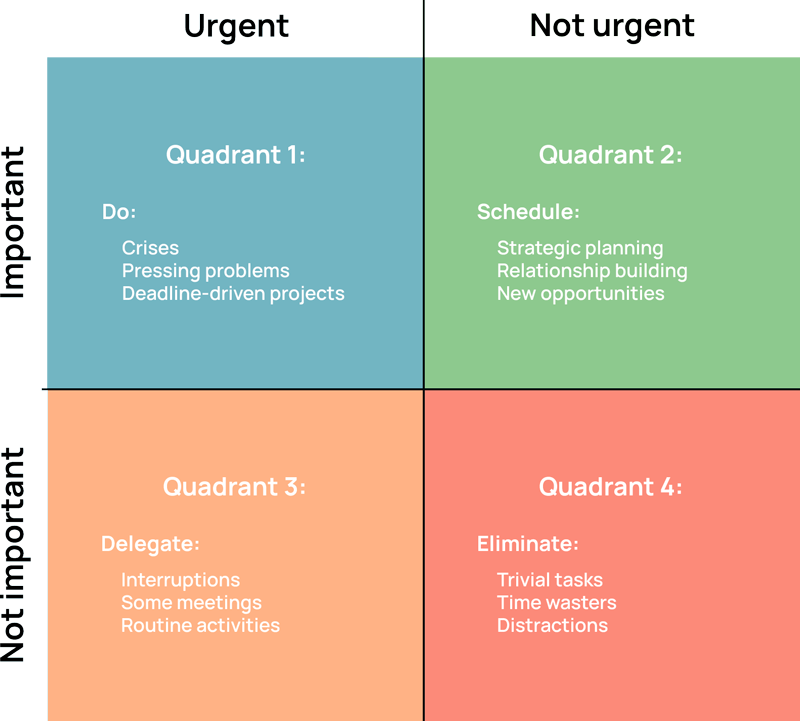
You didn't become a founder to manage inboxes. You didn't build a company to coordinate travel schedules or format presentations.
You did it to innovate, to lead, to build something that matters.
Yet for many CEOs across Europe, the daily reality is a relentless flood of operational tasks - a "death by a thousand cuts" that drains energy and pulls you away from the high-impact work only you can do.If you feel like the primary bottleneck in your own company, you're not alone. The transition from "doer" to "leader" is the single greatest challenge in scaling a business.
This isn't just another guide on "how to delegate." This is a playbook of advanced, actionable frameworks designed for high-stakes environments. It will equip you with the mindset, systems, and tools to stop managing tasks and start directing outcomes - transforming delegation from a daily necessity into your most powerful lever for growth. This CEO delegation playbook gives you the frameworks to make that transformation.
Strategic delegation is the intentional transfer of tasks, decisions, and responsibilities to free leadership capacity for high-value work. It's not about offloading your to-do list - it's about systematically removing yourself as the bottleneck so your business can scale beyond your personal bandwidth. Done well, delegation multiplies your impact rather than just reducing your workload.
Before any framework can be effective, the right mindset is essential. Many leaders struggle with delegation not because of a lack of talent on their team, but because of their own psychological barriers.
This is the most common trap.
While it may be true for a single task in the short term, it's a disastrous long-term strategy. Every time you complete a task that could be delegated, you're not just completing that task - you're robbing yourself of time that could be spent on higher-value activities, and you're preventing someone else from developing the capability to handle it.
The mindset shift: Move from "it's faster to do" to "it's faster to teach."
The first time you delegate a task takes longer than doing it yourself. The second time is faster. By the fifth time, it's off your plate forever. Delegation is an investment, not an expense.
This is the perfectionist's dilemma - and it's a direct obstacle to scale.
Two concepts help overcome this:
The irony: the reason you don't have time to delegate is because you're not delegating.
According to DonnaPro, leaders who invest 30 minutes documenting a recurring task save 5+ hours monthly once that task is handed off. The math always favours delegation - it just requires accepting short-term friction for long-term freedom.
Not everything should be handed off. Your primary responsibility as CEO is to lead - to set vision, build key relationships, and make high-level strategic decisions. These are the things that cannot be delegated:
Every minute spent on a delegable task is a minute stolen from these critical functions.

Effective CEO delegation isn't about randomly offloading your to-do list. It's a strategic process of filtering which tasks to keep and which to hand off.
This classic tool categorises every task into four quadrants based on urgency and importance:
The key insight: most CEOs spend too much time in Quadrants 1 and 3, and too little in Quadrant 2. Strategic delegation shifts this balance.
A more granular approach analyses tasks based on their monetary value:
By systematically delegating €10 and €100 tasks, you free capacity to focus exclusively on €1,000+ work that drives real growth.
Beyond time and value, consider energy. Some tasks drain you disproportionately - even if they don't take much time, they consume mental bandwidth and leave you depleted for high-value work.
Ask yourself:
These energy-draining tasks are high-priority delegation candidates, regardless of their position in other frameworks.

Theory is useful, but action drives results. Here's a simple exercise you can complete in 15 minutes. The goal isn't to create more work - it's to create a clear starting point.
List 5-10 tasks you find yourself doing every week:
Examples:
List 3-5 tasks you dislike but are necessary:
Examples:
Whether it's a shared spreadsheet, Notion database, or project management tool - the format matters less than the discipline of keeping it updated.
List 1-3 strategic projects you'd start with an extra 10 hours per week:
Examples:
This simple list is now a powerful roadmap. A skilled EA can immediately take over recurring tasks, systematise the work you dislike, and begin foundational research for your strategic projects.
Use our Executive Assistant Cost Calculator to calculate your potential savings. Most leaders discover that strategic delegation isn't a cost - it's a high-return investment.
Calculate ROI of delegation
Knowing what to delegate is half the equation. How you hand off work determines whether delegation succeeds or fails.
Simply dumping tasks on someone's plate isn't delegation - it's abdication.
Follow this structured process:
Start with the end in mind. Communicate the "what" and the "why," but not necessarily the "how."
Include:
Set your delegate up for success. This means granting:
Nothing is more frustrating than being given responsibility without the power to act.
Avoid the extremes of micromanaging or disappearing entirely. Establish clear checkpoints:
For routine tasks, a weekly summary may suffice. For complex projects, brief daily check-ins during critical phases.
Accountability should be constructive, not punitive. Establish:
According to DonnaPro, the most successful delegation relationships include explicit "definition of done" criteria agreed upfront - removing ambiguity about expectations.
After completion, reflect:
Each delegation cycle should improve the next one. Over time, you'll build a library of documented processes and a team that operates with increasing autonomy.

Even experienced leaders fall into these traps:
Handing off tasks without explaining why they matter leads to poor prioritisation and decisions that miss the mark.
This happens when you delegate a task, then take it back when problems arise. It teaches your team that if they struggle, you'll rescue them.
If every decision still flows through you, you haven't really delegated - you've just added a middleman.
Redoing work that was "good enough" destroys your delegate's confidence and wastes everyone's time.
Delegation without feedback leads to repeated mistakes and stagnant performance.
Delegating something one week, then doing it yourself the next, creates confusion about responsibilities.

Individual delegation is good. A delegation system is transformative.
Create a simple playbook documenting:
This playbook becomes invaluable - for consistency, for onboarding new team members, and for continuous improvement.
Spend 15 minutes weekly reviewing:
This regular reflection prevents delegation drift - the tendency to gradually reclaim tasks over time.
Not all delegation is equal. Progress through these levels:
The goal is moving tasks up the ladder over time, building toward true autonomy.
CEO delegation is a skill that improves with practice - each successful handoff teaches you something about what works for your style and your team.
Strategic delegation is the key to unlocking your next level of growth. It's the conscious decision to let go of the good to make room for the great.
The frameworks in this playbook - the mindset shifts, the filtering systems, the 5-step process - give you the structure to delegate effectively. But frameworks alone don't create change. Action does.
Start with the 15-minute audit. Identify three tasks to delegate this week. Build the habit. Refine the system.
According to DonnaPro, leaders who systematically implement delegation frameworks reclaim an average of 60 hours monthly - time that flows directly back into the strategic work that only they can do.
The only real question: what will you do with that time?
DonnaPro is a virtual assistant agency that works exclusively with CEOs and founders, offering a turn-key solution to finding, vetting, onboarding, and managing executive assistants. As the world's first agency specialising in part-time, dedicated C-level executive assistants, DonnaPro helps leaders save up to 60 hours per month - freeing them to focus on what matters most.
Book Your Free Strategy SessionDonnaPro connects CEOs and founders with dedicated executive assistants trained specifically in strategic support. Our EAs don't just take tasks - they become true delegation partners.
Schedule Your Free Strategy SessionExplore more guides to help you hire, work with, and get the most from your executive assistant.